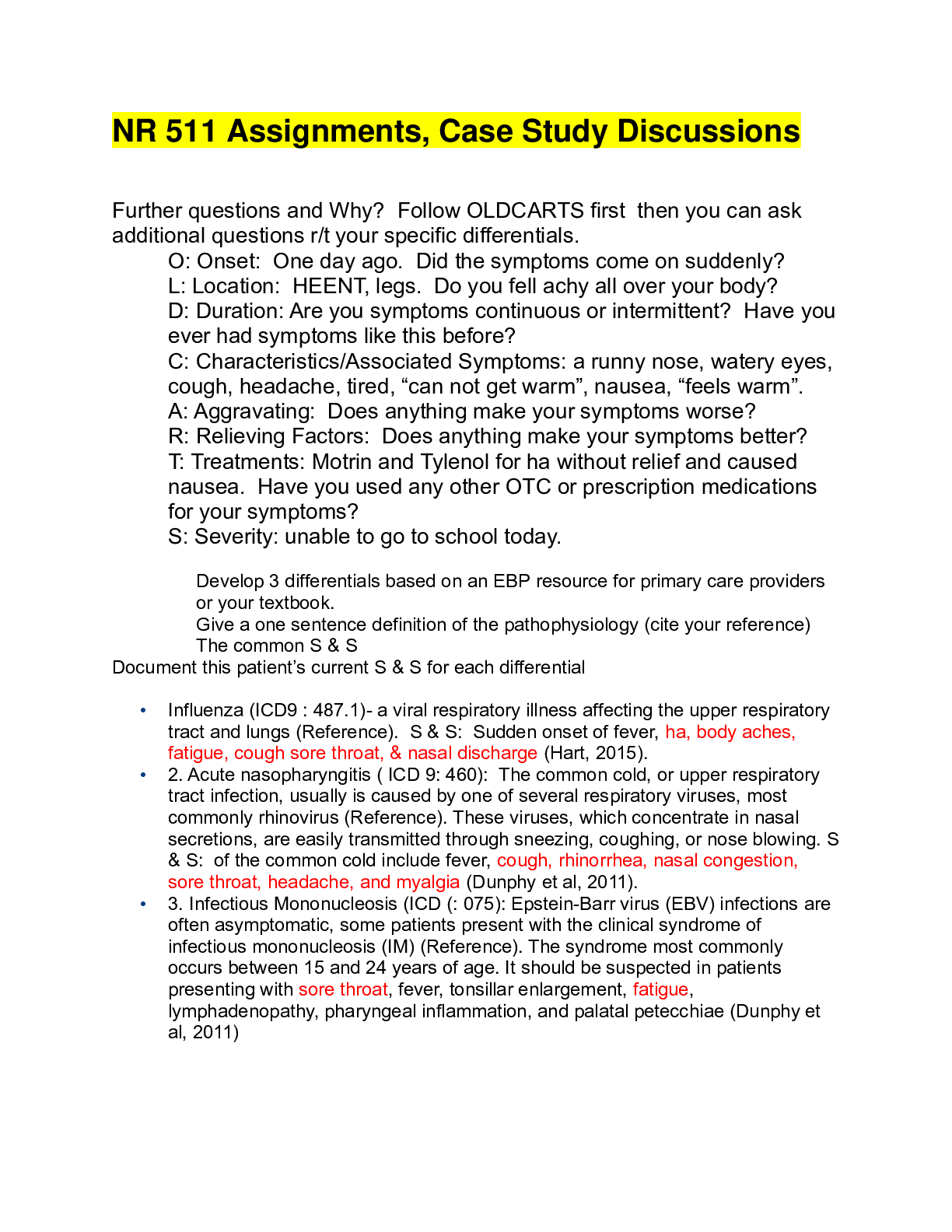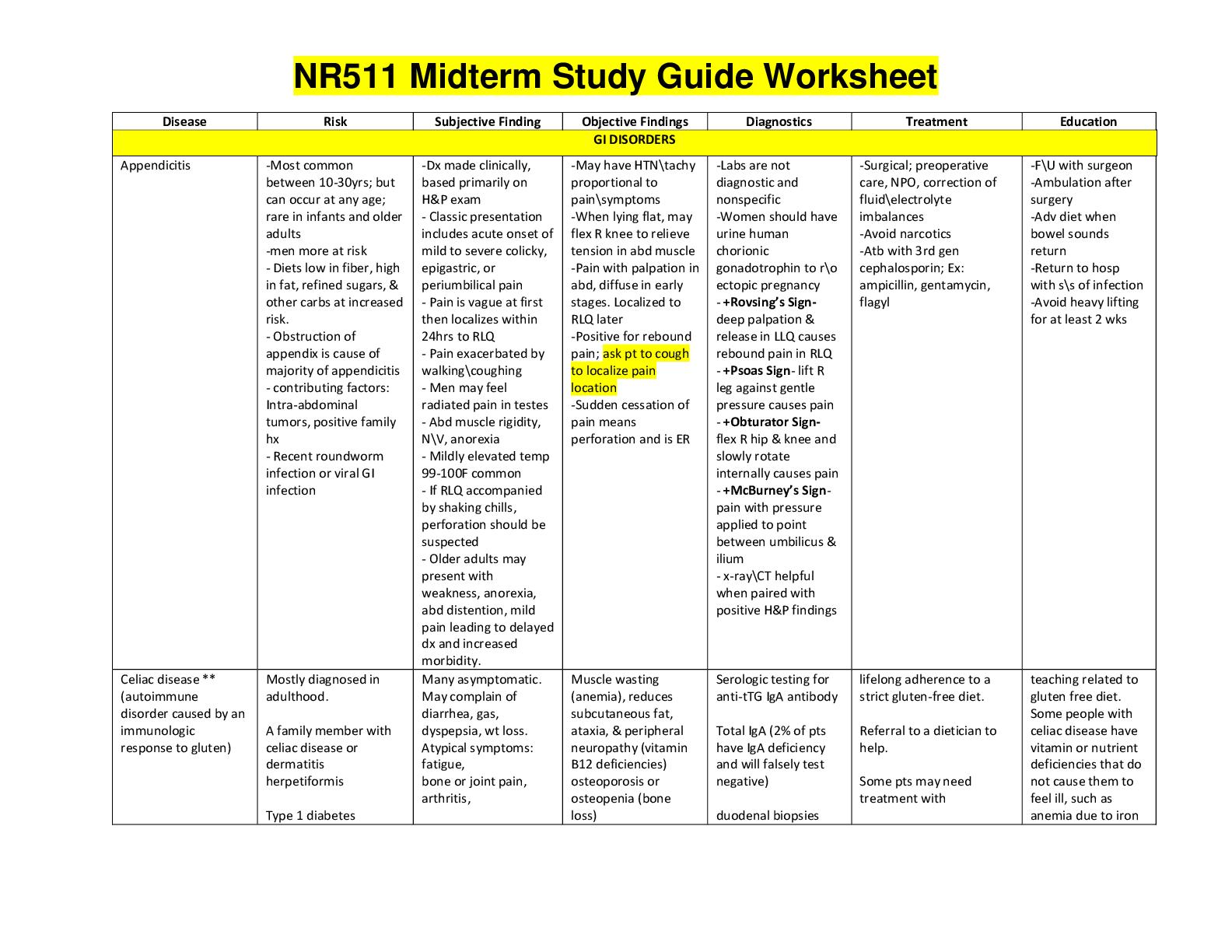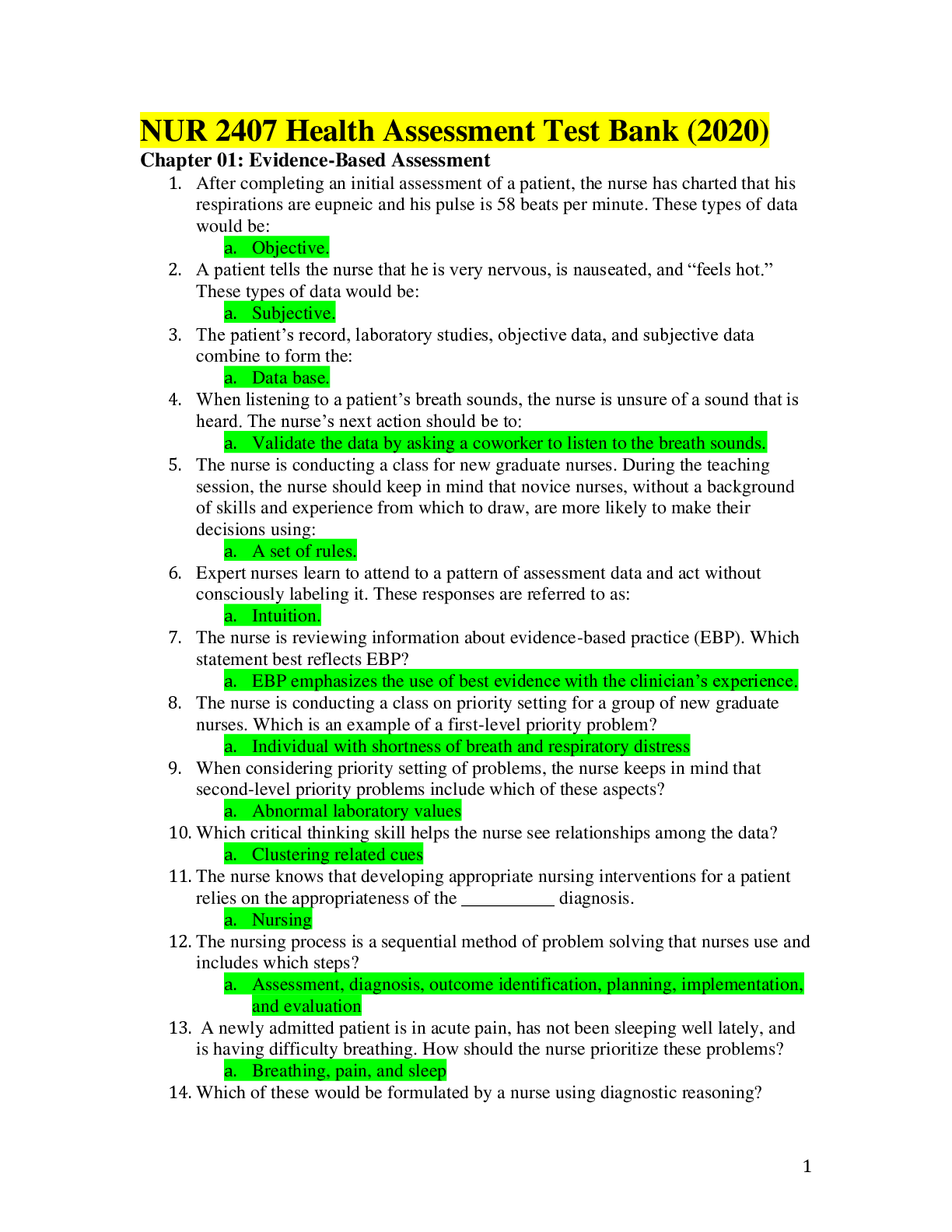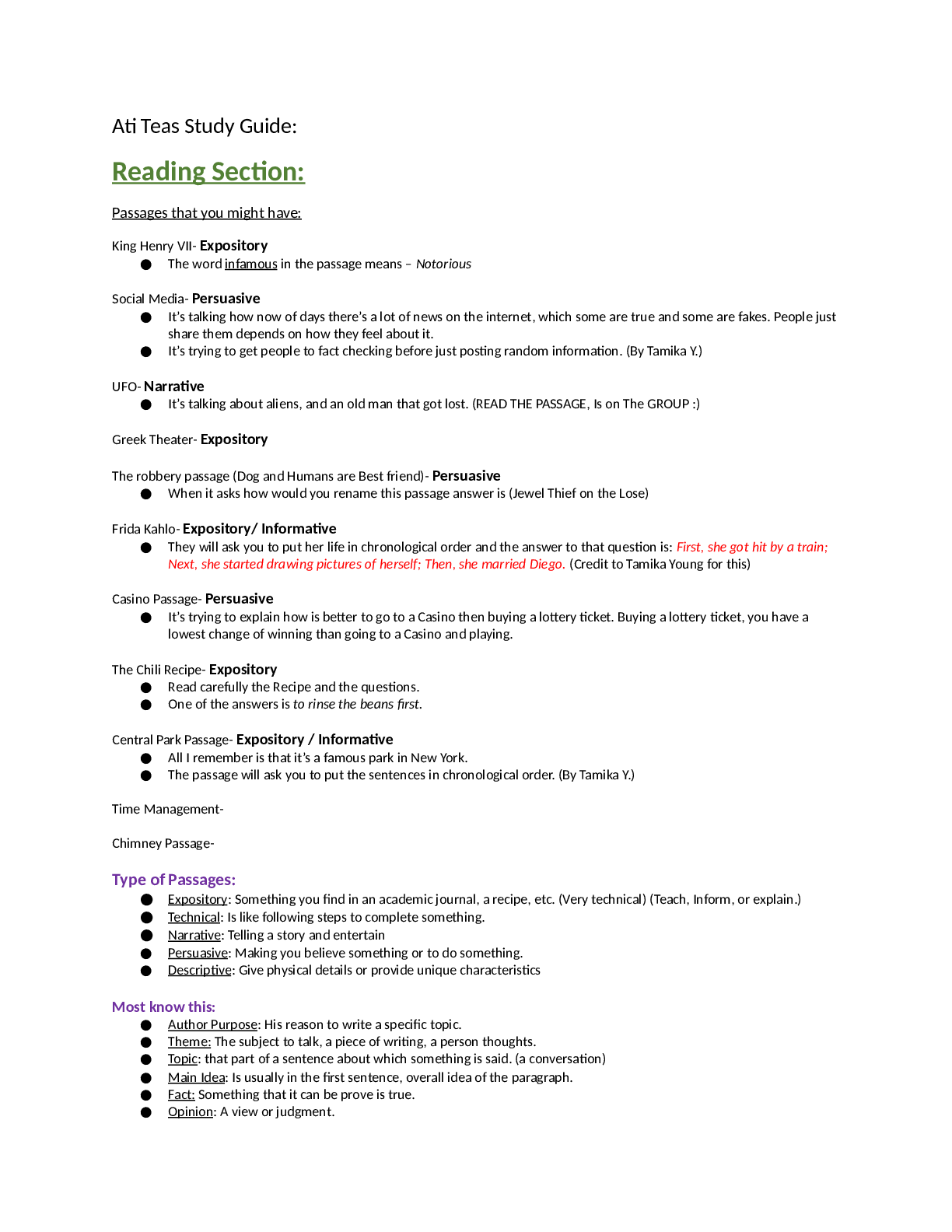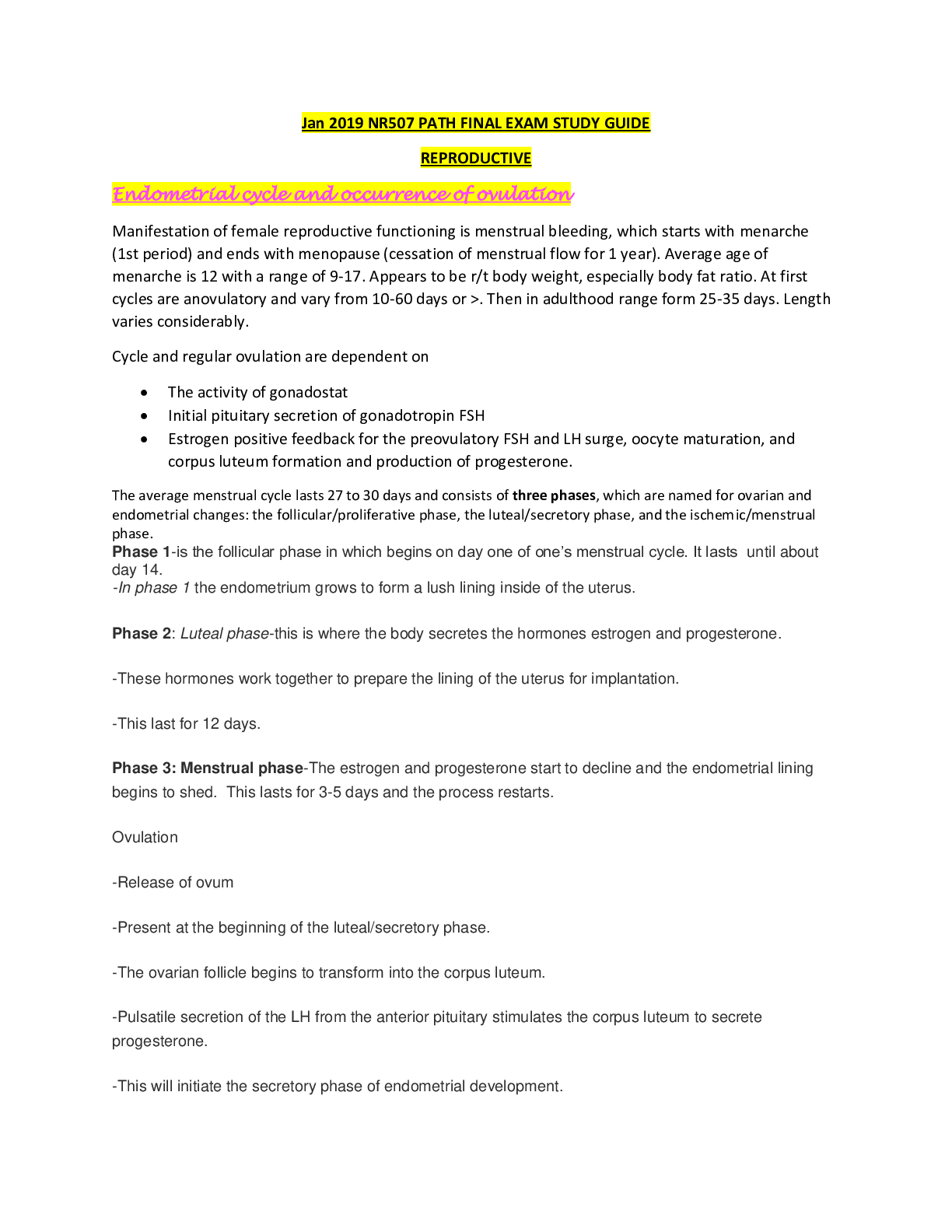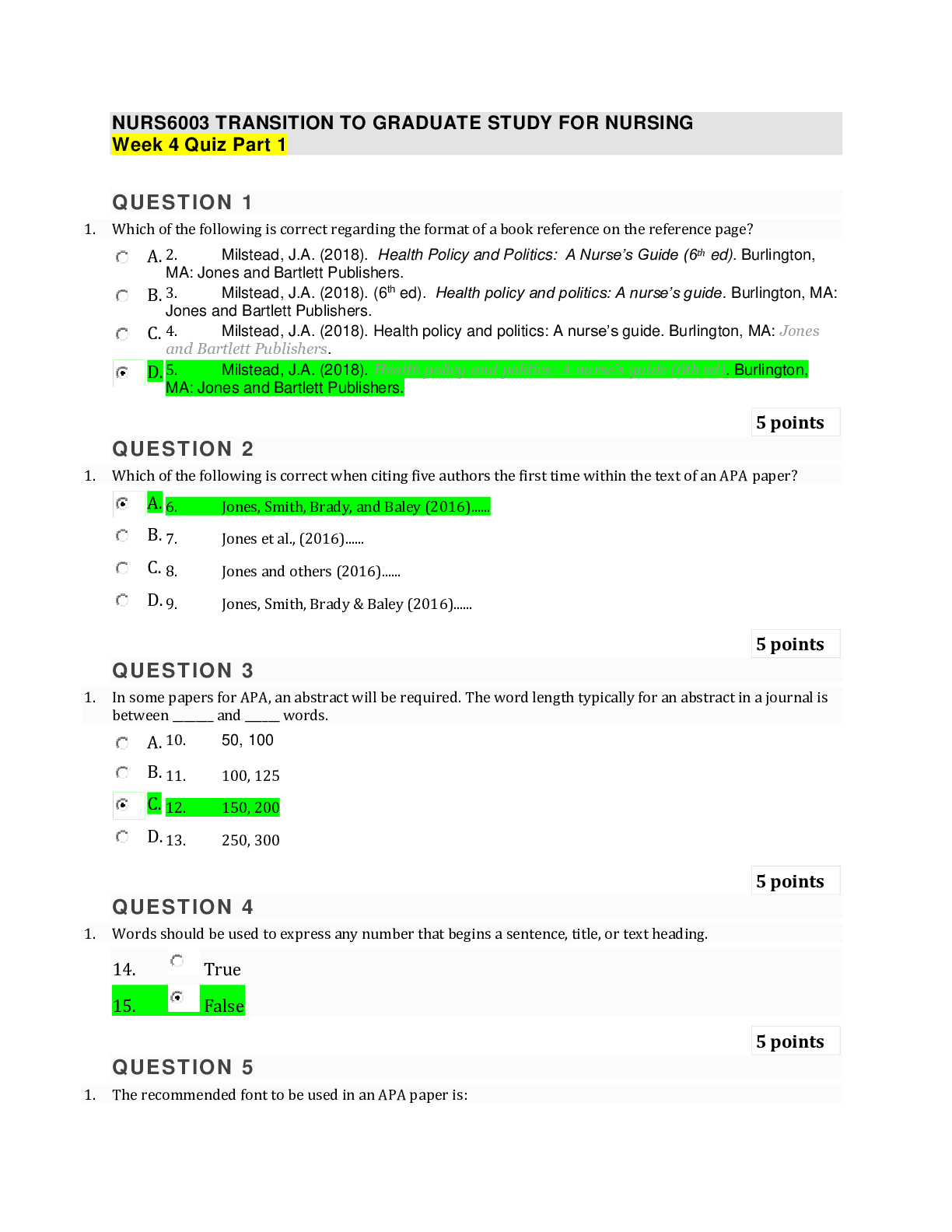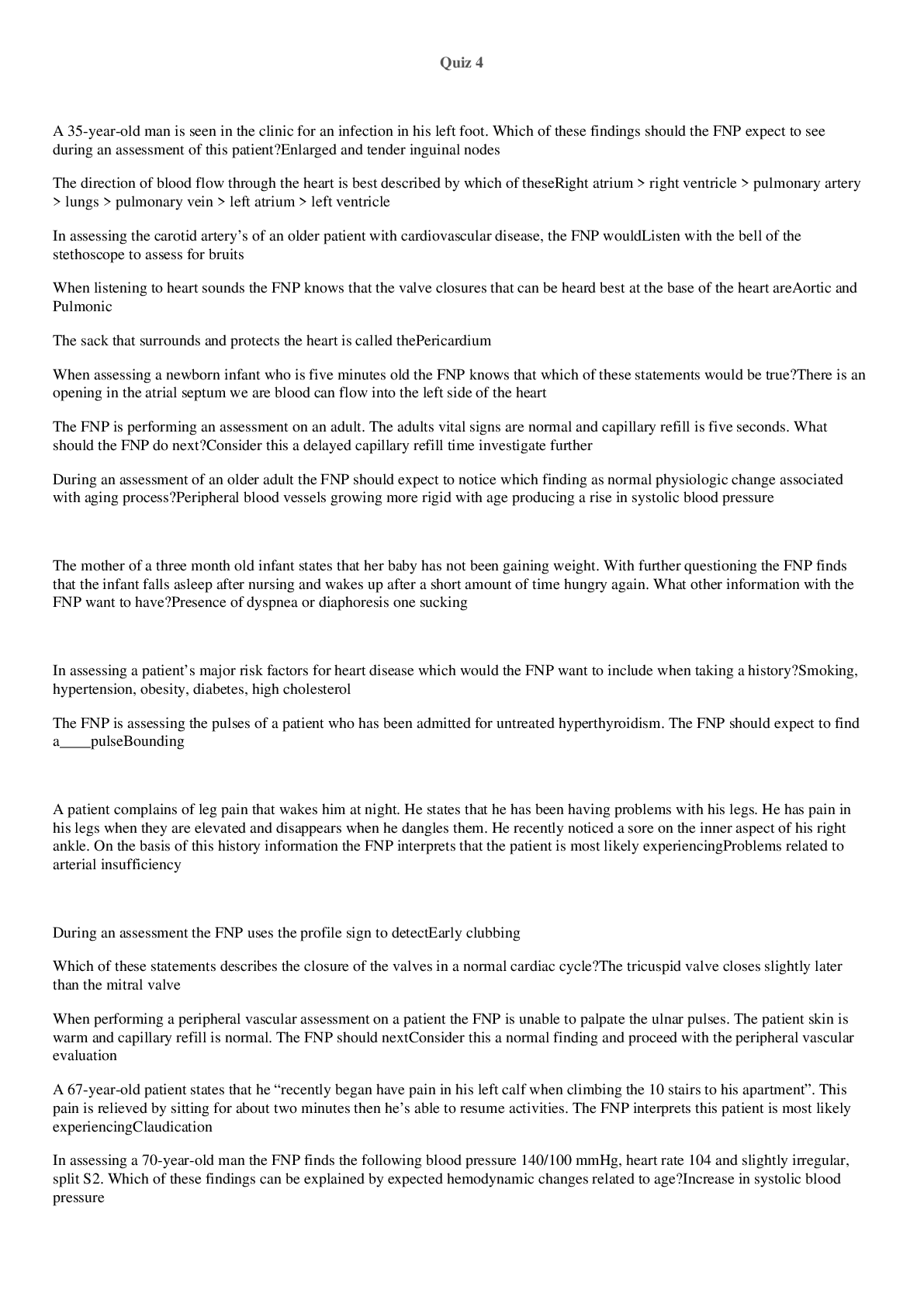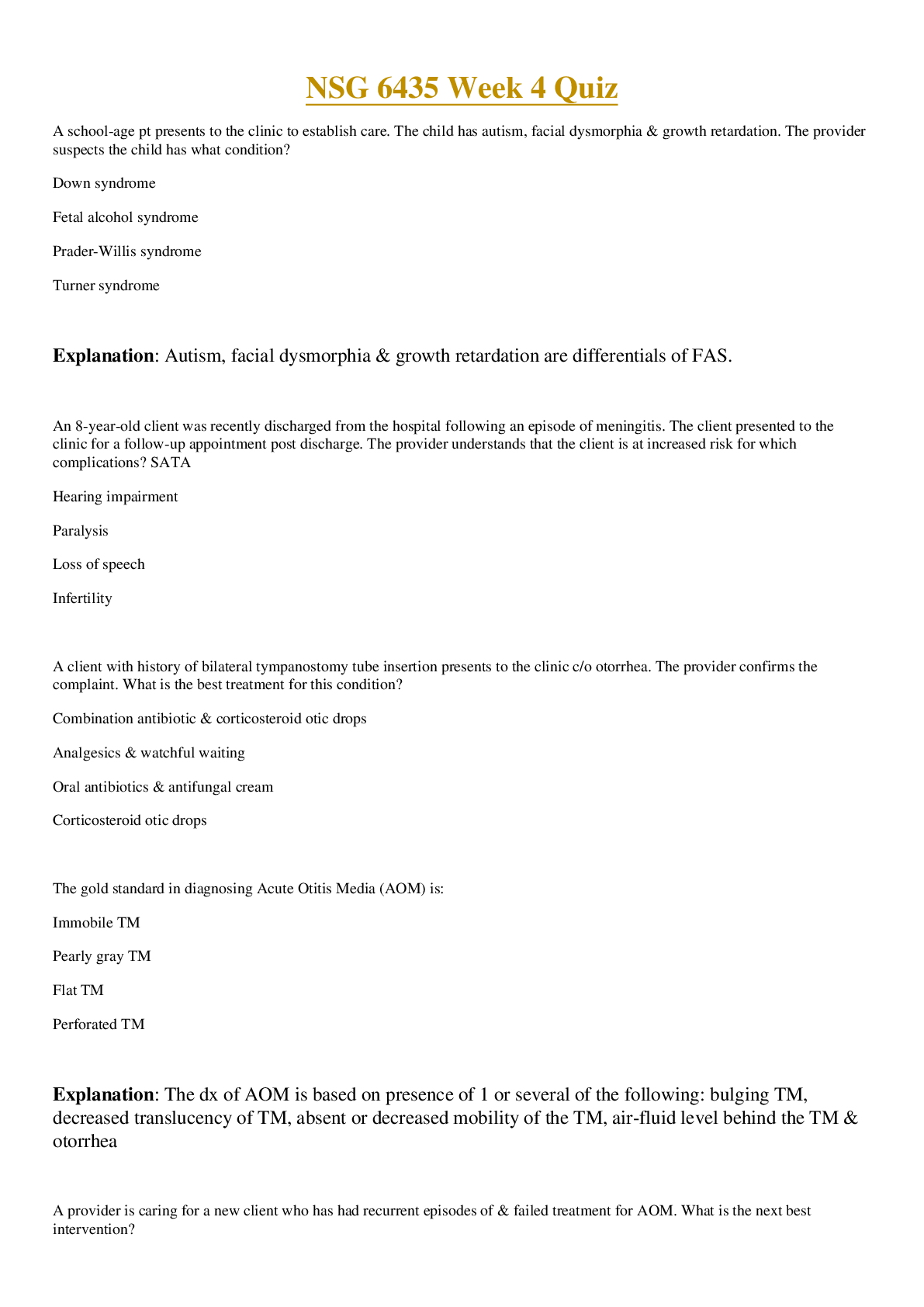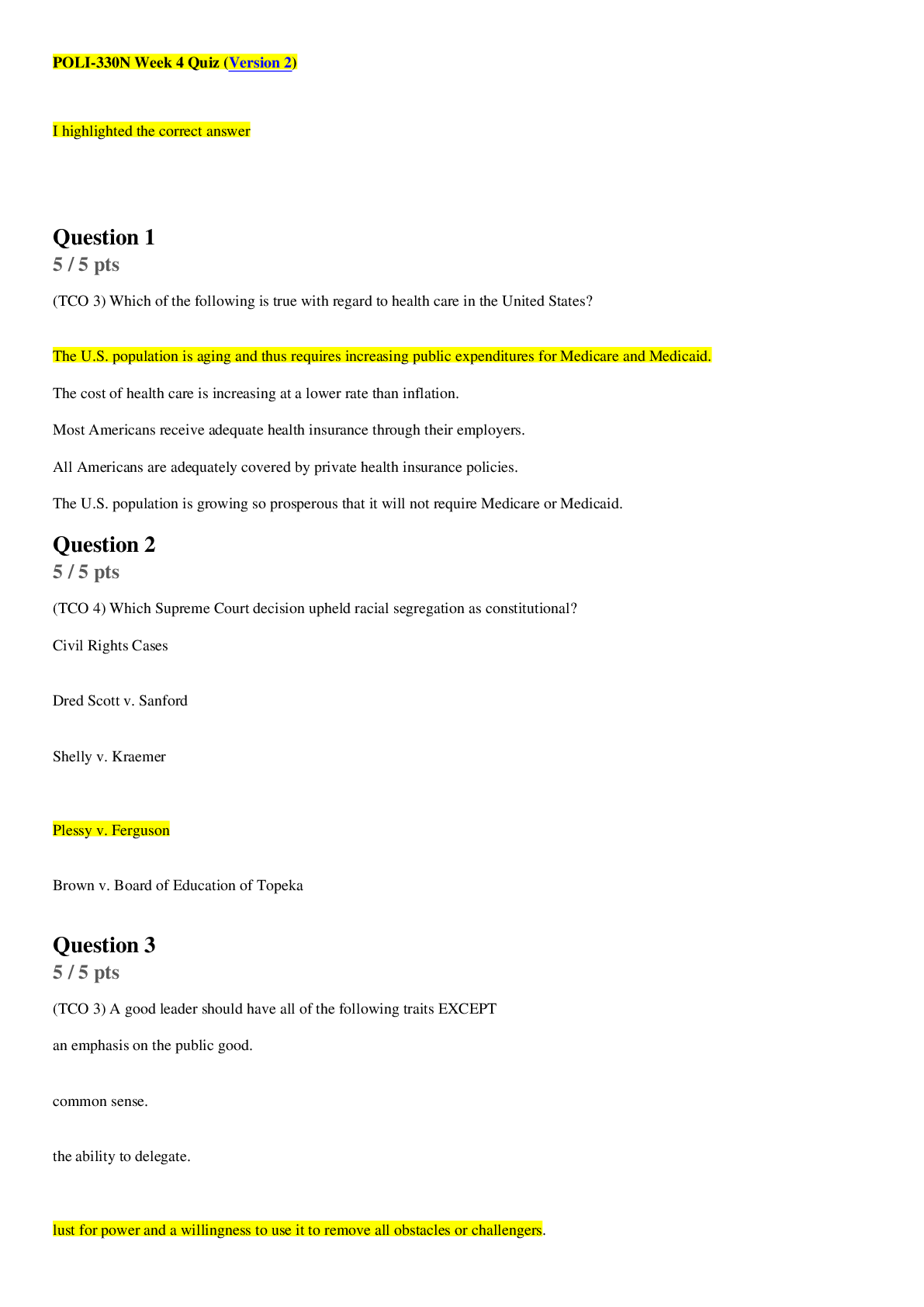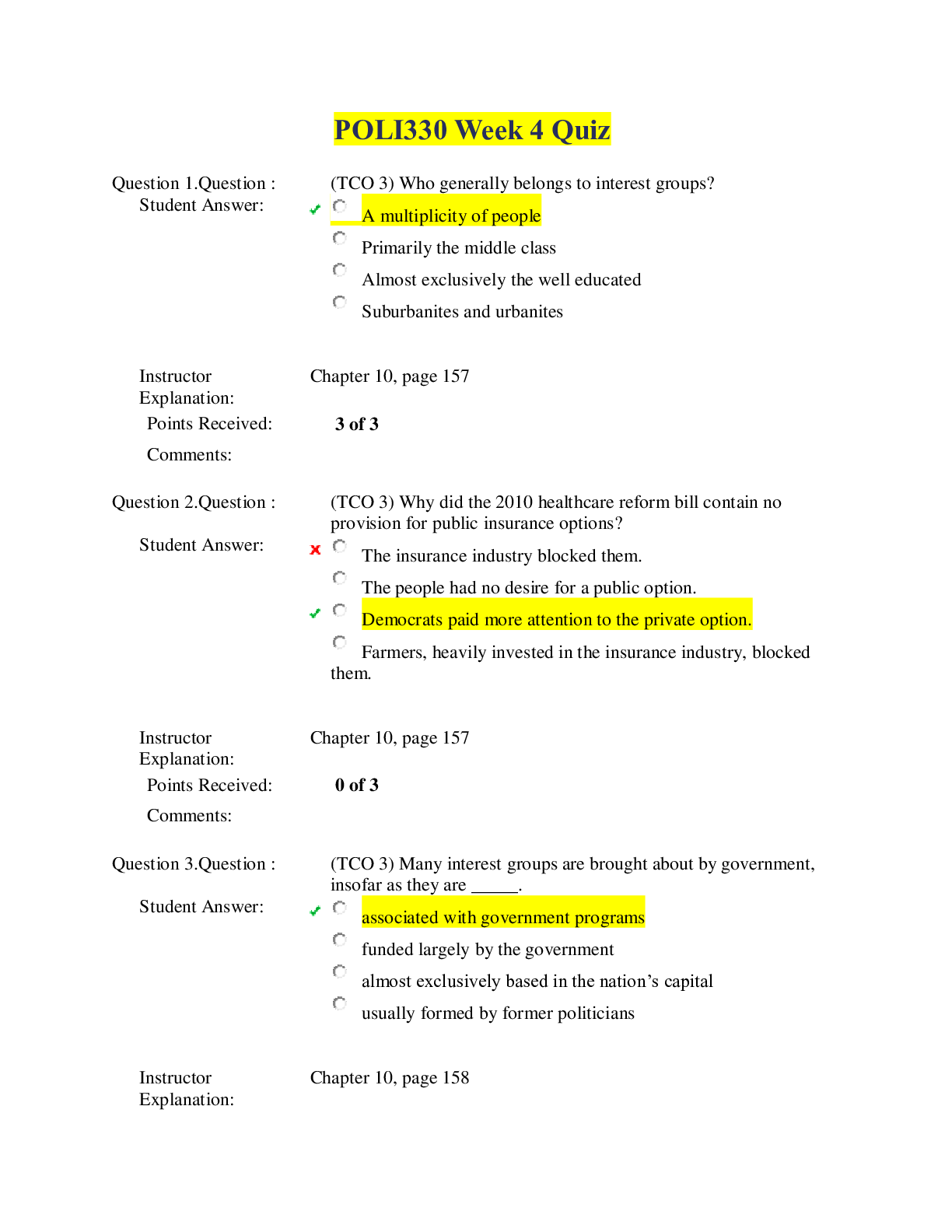Political Science > STUDY GUIDE > POLI 330 Week 4 Quiz 1 SG - Chamberlain College (2019) All Ans Correct. (All)
POLI 330 Week 4 Quiz 1 SG - Chamberlain College (2019) All Ans Correct.
Document Content and Description Below
POLI 330N Week 4 Quiz 1 – Question and Answers Question 1. Question : (TCO 3) Explain which individuals have the most influence on politics via interest groups. Women The elderly ... A wide variety of people Rich individuals Points Received: 3 of 3 Comments: Question 2. Question : (TCO 3) Why did the 2010 healthcare reform bill contain no provision for public insurance options? The insurance industry blocked the Democrats efforts for a public option. The people had no desire for a public option. Democrats were not interested in a public option. Farmers, heavily invested in the insurance industry, blocked them Points Received: 3 of 3 Comments: Question 3. Question : (TCO 3) Bureaucracies have become big and powerful, developing _____ of their own. candidates interests political parties media outlets Points Received: 3 of 3 Comments: Question 4. Question : (TCO 3) In countries where _____, the courts become an arena of interest-group contention. public defenders are unavailable the rule of law is strong judges have little power the rule of law is weak Points Received: 3 of 3 Comments: Question 5. Question : (TCO 3) Large parties in particular can be analyzed as _____. generations of like-minded voters coalitions of interest groups team-led organizations based around a theme trustworthy representatives of national interest Points Received: 3 of 3 Comments: Question 6. Question : (TCO 3) _____ allow and even encourage parties to split. Single-member districts “First past the post” systems Proportional representation systems Plurality systems Points Received: 3 of 3 Comments: Question 7. Question : (TCO 3) Which of the following is an advantage to having less powerful, less centralized parties? Fluid and flexible parties may be better able to process demands from a wider range of citizens. Multiple party platforms possess greater persuasive abilities over the general public. Parties can form a stronger organizational identity based around a single, cohesive ideology. Third parties can effectively shoot for power grabs at legislative seats. Points Received: 3 of 3 Comments: Question 8. Question : (TCO 3) What do you think might be a side effect of or a cause of nations with very high voter turnout having that level of turnout? They may have a kind of political fever in which partisan politics has become too intense. They likely play host to elections in which indistinct personalities and a relatively unified electorate bring out more voters. They probably don’t offer automatic voter registration. They usually have mandatory voting. Points Received: 3 of 3 Comments: Question 9. Question : (TCO 3) Describe the impact of education on those who vote. Education drops the sense of participation and makes people feel more cynical, which makes people more likely to take action but not to actually follow political news. Education lifts the sense of participation and abstract intellectual curiosity, which makes people more likely to follow individual politicians. Education lifts the sense of political knowledge, which makes people more likely to follow political news and feel involved. Education lifts the sense of participation and abstract intellectual curiosity, which makes people more likely to follow political news and feel involved. Points Received: 3 of 3 Comments: Question 10. Question : (TCO 3) Why might factory workers in small towns feel a different sense of the stakes elections hold than executives and professionals? Factory workers in small towns may perceive a great deal of difference between candidates, noticing considerable change from one administration to another, and executives and professionals feel generally less involved but still perceive a direct correlation between who wins and their personal fortunes. Factory workers in small towns may perceive little difference between candidates, noticing little change from one administration to another, and although executives and professionals share this sense of noticing little change from one administration to another, they still perceive a direct correlation between who wins and their personal fortunes. Factory workers in small towns may perceive little difference between candidates, noticing little change from one administration to another, and executives and professionals feel involved and perceive a direct correlation between who wins and their personal fortunes. Executives and professionals may perceive little difference between candidates, noticing little change from one administration to another, and factory workers in small towns feel involved and perceive a direct correlation between who wins and their personal incomes. Points Received: 3 of 3 Comments: [Show More]
Last updated: 2 years ago
Preview 1 out of 5 pages

Buy this document to get the full access instantly
Instant Download Access after purchase
Buy NowInstant download
We Accept:

Reviews( 0 )
$3.00
Can't find what you want? Try our AI powered Search
Document information
Connected school, study & course
About the document
Uploaded On
Nov 03, 2019
Number of pages
5
Written in
Additional information
This document has been written for:
Uploaded
Nov 03, 2019
Downloads
0
Views
142

